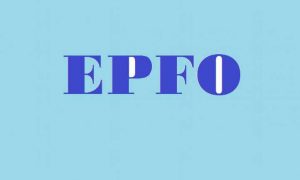PF Tax Rules: In the name of rationalization of the Provident Fund (PF) accounts, the central government has announced to levy income tax on PF contribution beyond Rs 2.5 lakh in a particular financial year.
PF Tax Rules: In the name of rationalization of the Provident Fund (PF) accounts, the central government has announced to levy income tax on PF contribution beyond Rs 2.5 lakh in a particular financial year. Finance Minister Nirmala Sitharaman announced the Centre’s decision in her budget speech. Since, the budget bill has been passed by both the houses of Parliament, so, there is no chance of roll-back of this PF tax rule. It will get implemented from the new financial year i.e. FY 2021-22. Hence, from 1st April 2021, those who have a PF and EPF account, need to check their monthly contribution and see if they are crossing the Rs 2.5 lakh limit for income tax exemption.
“In order to rationalise tax exemption for the income earned by high income employees, it is proposed to restrict tax exemption for the interest income earned on the employees’ contribution to various provident funds to the annual contribution of Rs 2.5 lakh. This restriction shall be applicable only for the contribution made on or after 01.04.2021,” Nirmala Sitharaman announced while presenting the Budget 2021.
Therefore, from April 1, 2021 the income tax rules applicable on one’s PF account and EPF balance will get changed. Now, from 1st April 2021, interest incurred on one’s PF or EPF contribution beyond Rs 2.5 lakh in one financial year will become taxable. The income tax rate will become applicable depending upon the income tax slab in which the earning individual falls after addition of the PF/EPF interest earned during the year.
After the announcement of this budget proposal Nirmala Sitharaman has been maintaining that the decision will impact a limited number of people as most of the earning individuals won’t fall in this net. This decision to put PF/EPF under the income tax purview will impact the very high earning individuals as one can invest 12 per cent of one’s basic salary in a PF or EPF account.





































